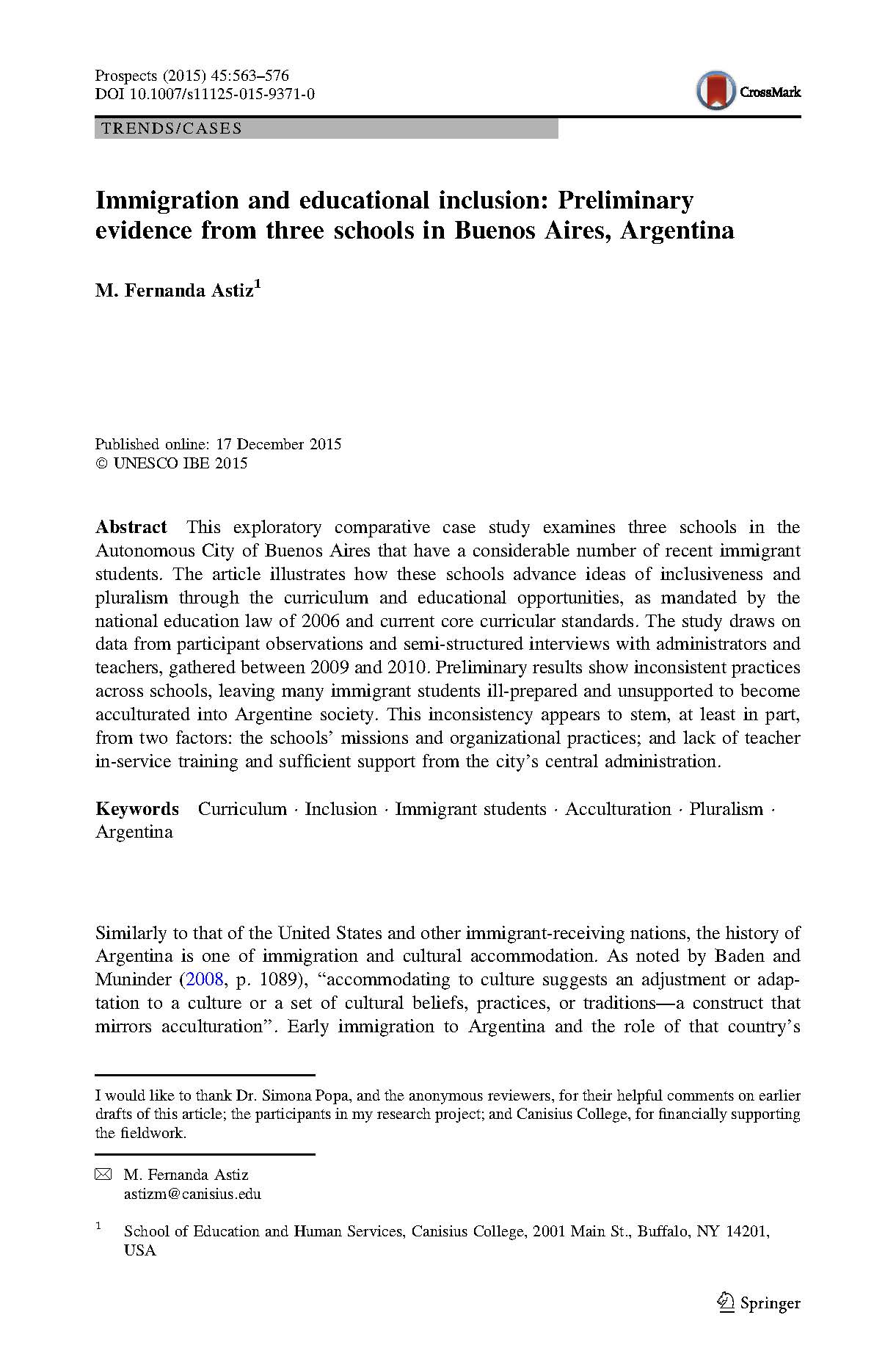Immigration and educational inclusion: Preliminary evidence from three schools in Buenos Aires, Argentina

This exploratory comparative case study examines three schools in the Autonomous City of Buenos Aires that have a considerable number of recent immigrant students. The article illustrates how these schools advance ideas of inclusiveness and pluralism through the curriculum and educational opportunities, as mandated by the national education law of 2006 and current core curricular standards. The study draws on data from participant observations and semi-structured interviews with administrators and teachers, gathered between 2009 and 2010. Preliminary results show inconsistent practices across schools, leaving many immigrant students ill-prepared and unsupported to become acculturated into Argentine society. This inconsistency appears to stem, at least in part, from two factors: the schools’ missions and organizational practices; and lack of teacher in-service training and sufficient support from the city’s central administration.
Year:
Organisation:
UNESCO, IBE
Keywords:
immigrant students
Marginalized & Vulnerable group:
Refugees & Migrants
Topic:
Curriculum
Level of Education:
Primary & Secondary
Type of Resources:
Research & Policy Papers
Country/Region:
Latin America & the Caribbean
Language of Publication:
English